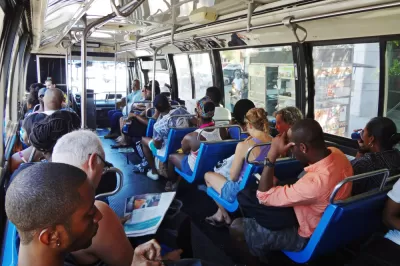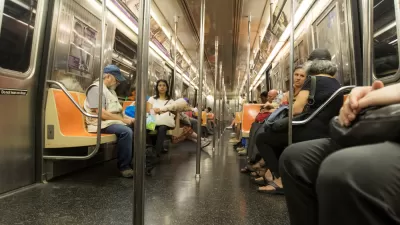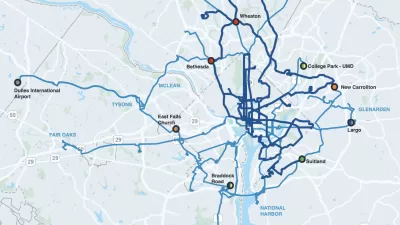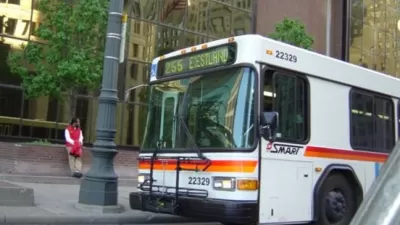As travel patterns and needs shift, transit agencies should look at service changes as a much-needed 'regular practice.'

In a guest post for TransitCenter, Laurel Paget-Seekins argues that, despite the challenges, "transit service needs to change in response to the COVID pandemic and to address underlying inequities." Although "[i]n general the status quo favors people and communities with access to political power," she writes, "this inertia was starting to give way, as agencies launched bus network redesigns to catch up on years of delayed service changes. COVID made it even more imperative to reassess service provision, as the pandemic altered travel patterns and revealed where and when service is most needed."
"Even as the pandemic (hopefully) recedes, the changes in travel needs will last for years as new patterns of remote work, deliveries, and land use take shape." As such, service changes must become "a regular practice," and "we need to find ways for agencies and communities to work through them collaboratively."
Paget-Seekins offers some suggestions for how agencies can address service changes in the future:
- "Transit advocates and agencies need to address the operating funding issue head-on and proactively."
- "Agencies need to work with community organizations, elected officials, and their governance boards to commit to a process of regular service changes for the next few years — even if there isn’t a funding crisis."
- "Agencies and community organizations also need to collaborate on the data that will inform decisions."
According to Paget-Seekins, "[i]t will be a huge disservice to riders for transit service to get stuck due to the perceived political difficulty of service changes — or for the service conversation to be driven only by fiscal emergencies and not community transportation needs."
FULL STORY: Service Changes Are Hard — and They’re Even More Necessary Now

Planetizen Federal Action Tracker
A weekly monitor of how Trump’s orders and actions are impacting planners and planning in America.

Restaurant Patios Were a Pandemic Win — Why Were They so Hard to Keep?
Social distancing requirements and changes in travel patterns prompted cities to pilot new uses for street and sidewalk space. Then it got complicated.

Map: Where Senate Republicans Want to Sell Your Public Lands
For public land advocates, the Senate Republicans’ proposal to sell millions of acres of public land in the West is “the biggest fight of their careers.”

Maui's Vacation Rental Debate Turns Ugly
Verbal attacks, misinformation campaigns and fistfights plague a high-stakes debate to convert thousands of vacation rentals into long-term housing.

San Francisco Suspends Traffic Calming Amidst Record Deaths
Citing “a challenging fiscal landscape,” the city will cease the program on the heels of 42 traffic deaths, including 24 pedestrians.

California Homeless Arrests, Citations Spike After Ruling
An investigation reveals that anti-homeless actions increased up to 500% after Grants Pass v. Johnson — even in cities claiming no policy change.
Urban Design for Planners 1: Software Tools
This six-course series explores essential urban design concepts using open source software and equips planners with the tools they need to participate fully in the urban design process.
Planning for Universal Design
Learn the tools for implementing Universal Design in planning regulations.
Heyer Gruel & Associates PA
JM Goldson LLC
Custer County Colorado
City of Camden Redevelopment Agency
City of Astoria
Transportation Research & Education Center (TREC) at Portland State University
Camden Redevelopment Agency
City of Claremont
Municipality of Princeton (NJ)





























